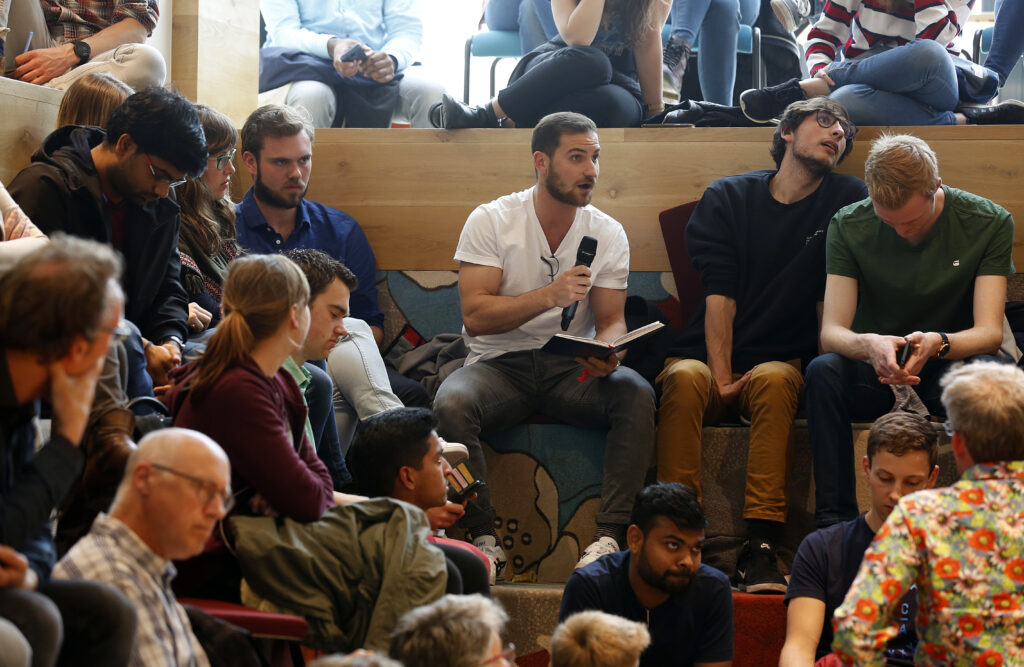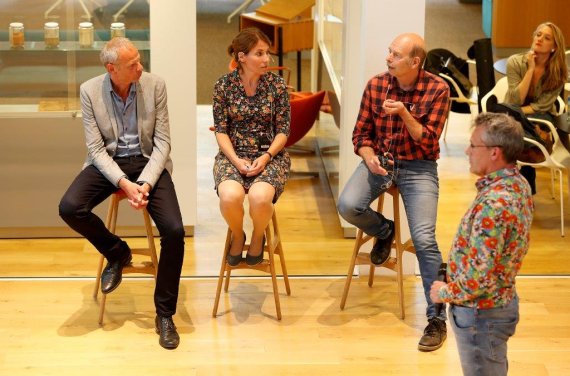All our fruits and vegetables were bred using classic mutagenesis. In that technique, plant breeders randomly force changes in the DNA using chemicals and radiation, Van der Oost explained. Using this brute-force method, somewhere between 10 and 20 million base pairs have been modified in tomatoes, for example. In comparison: the miniature tools of CRISPR-Cas very precisely cut and paste 20 to 30 base pairs, and we can check whether the operation was successful afterwards. However, CRISPR-Cas is currently covered by strict GMO control legislation, while the classic method does not have a safety check. This is a backwards approach, Van der Oost states.
Inclusive
Michelle Habets, employee at the Rathenau institute, was of the opinion that Van der Oost focused too much on the risks. She pleaded for an “inclusive debate”, in which we also assess whether CRISPR crops fit in a sustainable agriculture, benefit the farmers and reduce the dominant position of larger breeding companies. Such a societal analysis could increase the support for the technology, says Habets, who wrote a report (in Dutch) on the admission policy.
Ecosystem
Jan Willem Erisman, CEO of the Louis Bolk Institute, approached CRISPR-Cas from the view of the biological sector. He does not oppose the technique but would like to use CRISPR-Cas mainly as a supporting method for traditional breeding. Erisman believes that this technique is better for inserting, removing and replacing genes, but also wants to take a larger perspective on the plant as a whole in its ecosystem. ‘A plant is a smart system that reacts to its environment. That is therefore the level at which we should assess the possible negative consequences of such a genetic manipulation.’
Propositions
The nearly one hundred attendees had the chance to pose questions to Ernst van den Ende, who led the debate, express their opinions and vote for propositions during the debate. Most attendees agreed with Van der Oost regarding CRISPR-Cas being safer than traditional breeding methods, but also thought that the admission policy should no longer focus on the technique, but on the aim of the manipulation and the product created.

CRISPRcon
The Resource debate on CRISPR-Cas was a taste of the larger scientific conference on new breeding techniques organised by WUR. This CRISPRcon, Conversations on science, society and the future of gene editing, will take place on campus next month. Employees and students can still register for this two-day conference.

 Photo: Aldo Allessie
Photo: Aldo Allessie